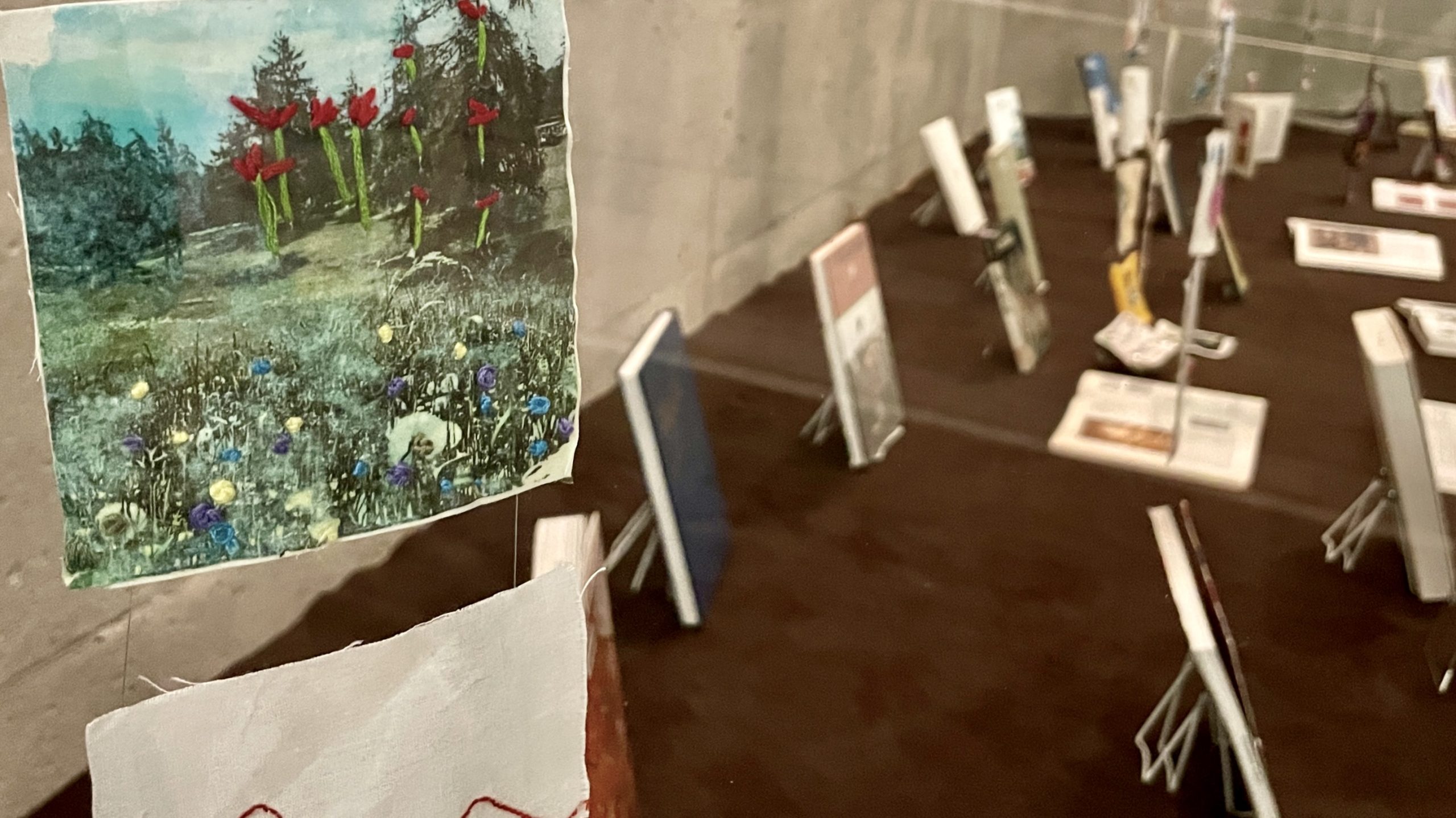
At The University of British Columbia, our recent endeavors have been deeply aligned with the core objectives of our research grant. Spearheaded by key collaborators, Anita Sinner and Elly Yazdanpanah, and with a focus on fostering community strength, social cohesion, and transformative learning, our activities have been diverse and collaborative. This reflects our commitment to reimagining higher education for the 21st century.
Our engagement in Textile Cartography workshops has provided a unique hub for exploring the realm of higher education in a transdisciplinary and transnational mode through immersive activities in Textile Cartography workshops. In these workshops which have been held with respect to sustainability of materials and concerns, we have delved into the concept of “Patterns as Poetic Practice,” weaving together narratives that transcend disciplinary boundaries. These workshops serve as a microcosm of our broader goal to cultivate transdisciplinary learning environments that nurture creativity, collaboration, and intellectual risk-taking. Importantly, we have become a part of a larger international group, collaborating with coordinators around the world from various disciplines, countries, organizations, and communities. This global collaboration enriches our workshops, infusing them with diverse perspectives and approaches, ultimately enhancing our understanding of how art, science, and technology intersect to shape the future of higher education.
Additionally, our exhibition on Patterns as Poetic Practice: A Global Conversation Through Textile Cartographies has been a testament to our commitment to international collaboration and cultural exchange. Featuring artworks from around the globe, this exhibition serves as a visual representation of the interconnectedness of human experience and the power of creativity to transcend linguistic and cultural barriers. Through this exhibition, we aim to stimulate critical thinking on the role of art-craft in shaping narratives of identity, belonging, and sustainability, aligning with our broader objective of promoting equitable and inclusive education.
Furthermore, the Undisciplined Conversations series has served as a vibrant space for transdisciplinary dialogue, facilitating exchanges between diverse perspectives within and beyond the realm of academia. By inviting esteemed scholars and practitioners from various fields, we have fostered discussions that challenge conventional wisdom and inspire innovative thinking. These conversations not only enrich our educational discourses but also contribute to the overarching aim of building inclusive learning communities grounded in intellectual diversity and dialogue. Trish Osler and Susana Vargas from Canada and Colombia sites participating in both events, textile workshops, and Undisciplined Conversations, further enrich the diversity of perspectives and experiences shared, enhancing the depth and breadth of our collaborative endeavors.
Initiating the COIL project, bridging graduate students from UBC with counterparts from Helwan University in Egypt and collaborating with the Bogota Museum of Modern Art, exemplifies our commitment to transnational and transdisciplinary collaboration. By bringing together students and institutions from diverse cultural and academic backgrounds, we are not only expanding access to educational opportunities but also fostering a sense of global citizenship and interconnectedness. By embracing diversity, inclusivity, and global perspectives, we chart a course towards equitable and sustainable learning environments empowering learners to navigate our interconnected world’s complexities.
Our engagement with community partners underscores embedding initiatives within the broader societal framework, fostering meaningful connections between higher education and society. We remain dedicated to building a more inclusive and interconnected higher education landscape embracing immersive learning’s transformative power to shape learning and scholarship’s future.